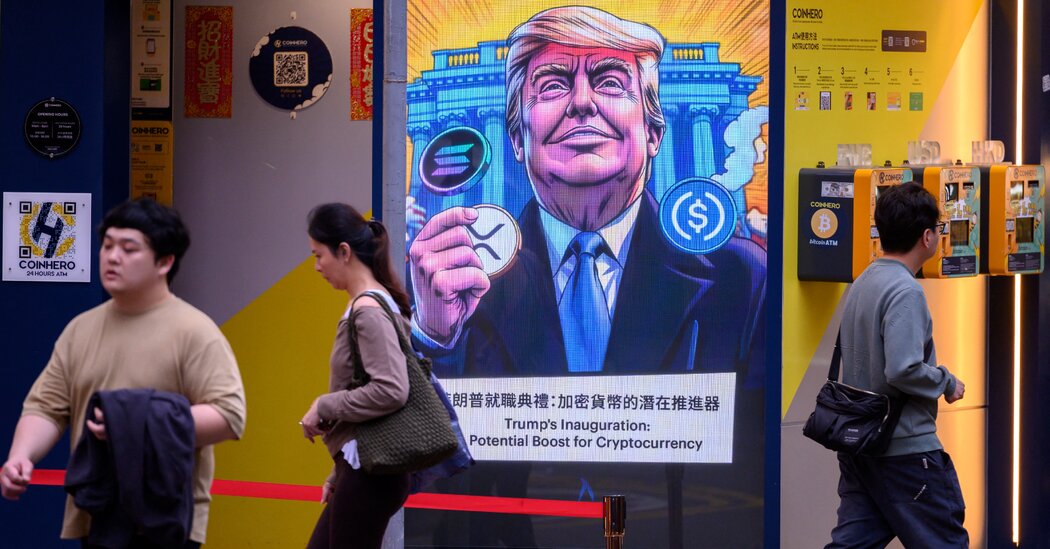On Feb. 26, the S.E.C. and Sun sent a letter to Edgardo Ramos, the federal judge overseeing the case, asking him “to stay this case to allow the parties to explore a potential resolution.”
“The case against Sun appeared ironclad,” Coingeek, an industry newsletter, reported,
but the new-look S.E.C. doesn’t appear to care. It’s perhaps worth mentioning that Sun purchased $75 million worth of WLFI — the governance token for U.S. President Donald Trump’s decentralized finance project, World Liberty Financial (WLF) — at a time when nobody appeared interested in buying into the so-far dormant WLF.
Jacob Silverman, the author of “Easy Money: Cryptocurrency, Casino Capitalism, and the Golden Age of Fraud,” said he considered the Sun investment a particularly open attempt to curry favor. Under the headline “The President Took a $75 Million Bribe, and We All Saw It,” he posted on his Substack, “Justin Sun’s payoff to Trump is now considered a model for how to influence the president.”
In a Times article on April 29 exploring Trump’s crypto dealings, “Secret Deals, Foreign Investments, Presidential Policy Changes: The Rise of Trump’s Crypto Firm,” Eric Lipton, Yaffe-Bellany and Ben Protess wrote:
None of the Trump family’s other business endeavors pose conflicts of interest that compare to those that have emerged since the birth of World Liberty. The firm, largely owned by a Trump family corporate entity, has erased centuries-old presidential norms, eviscerating the boundary between private enterprise and government policy in a manner without precedent in modern American history.
Lipton, Yaffe-Bellany and Protess found:
World Liberty has directly benefited from Mr. Trump’s official actions, such as his announcement of a federal crypto stockpile that would include a digital currency the firm has invested in. The president’s announcement caused a temporary jump in the value of World Liberty’s holdings.
World Liberty has sold its cryptocurrency to investors abroad, including in Israel and Hong Kong, according to interviews and data obtained by The Times, establishing a new avenue for foreign businesses to try to curry favor with Mr. Trump.
Several investors in World Liberty’s coin managed firms that the federal government accused of wrongdoing. They include an executive whose fraud case was suspended after he invested millions of dollars in World Liberty. Other investors and business partners, some of whom haven’t been publicly identified before, are looking to expand in ways that will require the Trump administration’s approval.
World Liberty proposed swapping cryptocurrencies with at least five start-ups, and often used the Trump name to solicit steep payments as part of the deals. Even in an industry with a disreputable history, the deals raised alarm among veteran executives.
Trump’s cryptocurrency ventures have provoked widespread criticism from Democrats. “It’s so brazen as to be hard to believe — the president selling access to the White House as a mechanism to enrich himself personally,” Senator Chris Murphy of Connecticut declared. And some Republicans are starting to raise concerns.
Asked what she thought of the dinner Trump is holding for buyers of his meme token, Senator Cynthia Lummis, Republican of Wyoming and the head of the Senate Banking Subcommittee on Digital Assets, told NBC, “This is my president that we’re talking about, but I am willing to say that this gives me pause.” Lummis, a strong Trump supporter, noted that the cryptocurrency industry “is the Wild West, and so when I hear things like this, my reaction is: We need to legislate so there are rules.”
“Even what may appear to be cringey with regard to meme coins, it’s legal,” Lummis went on, “and what we need to do is have a regulatory framework that makes this more clear, so we don’t have this Wild West scenario.”


